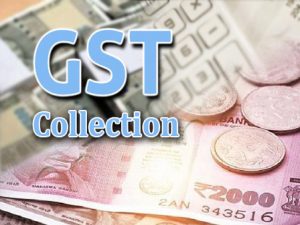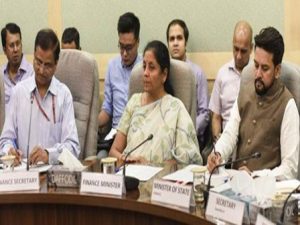COVID-19 Impact on GST Compensation to States
COVID-19 is going to alarmingly affect the Centre’s commitment to pay GST compensation to States.

The Covid-19 pandemic hit our country at a time when the Goods and Services Tax (GST) was gradually maturing after addressing its initial challenges one by one. Moreover, the steps taken to augment GST revenue collection including compliance monitoring, anti-evasive measures and better administrative coordination, etc. were starting to show positive results as well. These had helped to maintain the GST revenue above INR 1 lakh crore during the past few months. There is no doubt that the lockdown will significantly affect the GST collection at least for the next few years, especially if the fiscal stimulus measures fail to produce favourable results. This will not only impact the fiscal management of the Central government, but also affect the State finances in terms of lower tax devolution and timely release of GST compensation.
Also Read : Zero Gst On Pads Campaigners To Continue Fighting
As per the GST (Compensation to States) Act, 2017, the centre has to compensate states for their revenue loss due to the implementation of GST till 2022. Under Section 8 of this Act, ‘The compensation payable to a State shall be provisionally calculated and released at the end of every two months period, and shall be finally calculated for every financial year after the receipt of final revenue figures, as audited by the Comptroller and Auditor-General of India’.

However, the Centre is unable to release compensation cess at the end of every two months due to the lack of funds collected through compensation cess. In this regard, the Union Finance Minister, Nirmala Sitharaman hinted in her recent budget speech that the transfer of compensation to the states will be limited to the collection by way of GST compensation cess. This was not accepted by many states; they said that the Centre has to compensate, whether it is made from the compensation cess fund or consolidated fund.
One of the major challenges before the central government due to the lockdown is the compensation commitment to the states since the GST collection will be significantly affected in the coming few months. Total SGST collected by all States and UTs was INR 1,57,391 crore in March 2020; whereas, this month, it will be a miracle if they are able to collect at least 15 per cent of the SGST collected last month. Hence, the Centre has to compensate for the huge revenue gap and are highly unlikely to meet from the compensation cess being collected. If the Government decides to increase the rates of compensation cess, it means that the goods taxed at the highest rate of 28 per cent will continue to pinch your pocket.
Also Read : Gst The Tax Designed Beyond Distortions
As a relief to the states’ financial crunch due to the lockdown, the government has released INR 14,103 crore of GST compensation in the last week, for the period of October–November 2019 along with INR 19.950 crore releases on this February. Including this, INR1.2 trillion has been disbursed for 2019–20 so far, as against the total cess collection of only INR 95,000 crore. Sadly, INR 60,000 crore is still pending with the Centre for disbursement for the last four months.
Since there is no scope to increase the existing cess rates or widening the number of cess applicable items in the near future, the question is how the Centre will compensate States for their huge GST loss when its own fiscal health is under severe crisis. There are proposals that the Centre could borrow fund from the market for this purpose and extend the cess collection beyond 2022 when the compensation requirement ceases to exist. The funds thus collected by way of GST cess beyond 2022 could be used to repay the debt raised from the market.
